Welcome to our comprehensive guide on pet monkeys, covering everything you need to know about these exotic pets. Whether you’re considering owning a monkey or simply want to learn more about their care, ownership legality, and the responsibilities involved, you’ve come to the right place.
As primate companions, pet monkeys can be fascinating creatures with unique needs and characteristics. In this guide, we’ll explore the care tips, costs, and legality surrounding these captivating animals, ensuring you have the information you need to make informed decisions.
Is it Legal to Own a Pet Monkey?
The legality of owning a pet monkey varies depending on the state you reside in. While some states prohibit ownership completely, others allow it with certain conditions. However, even in states where it is legal, you still need to obtain a permit and provide a suitable enclosure for the monkey.
Owning a pet monkey requires careful consideration of the legal requirements and responsibilities involved. Before bringing a monkey into your home, it is crucial to understand the specific laws and regulations in your state.
State Laws and Legal Restrictions
Each state in the United States has its own laws and regulations regarding pet monkey ownership. Some states have enacted complete bans on owning monkeys as pets, while others have specific limitations and permit requirements.
To ensure compliance with the law and avoid legal issues, it is essential to research and understand the laws in your state. Contact your local wildlife authorities or animal control agencies for comprehensive information on pet monkey ownership restrictions and permit application processes.
“Pet monkey ownership is subject to strict regulations to protect both the welfare of the animal and the safety of the public. It is crucial for individuals to understand and abide by the laws and requirements set forth by their state.”
Permits and Documentation
In states where owning a pet monkey is allowed, obtaining a permit is typically mandatory. These permits ensure that owners meet certain criteria and can provide the necessary care for the monkey. Requirements for obtaining a permit may include:
- Proof of appropriate enclosure or habitat
- Proof of ability to provide proper diet and veterinary care
- Proof of experience or education in monkey care
- Registration and microchipping of the monkey
- Regular inspections of the enclosure by wildlife authorities
Permit processes and requirements can vary from state to state, so it is crucial to familiarize yourself with the specific mandates in your area.
Enclosure Requirements for Pet Monkeys
Providing a suitable enclosure for a pet monkey is vital to their well-being and safety. Monkeys are active and curious animals that require ample space to climb, swing, and play.
The enclosure should be secure, escape-proof, and large enough to accommodate the monkey’s natural behaviors. It should include items such as perches, platforms, ropes, and toys to keep the monkey mentally stimulated and physically active.
Here is an example of recommended enclosure dimensions for common pet monkey species:
| Monkey Species | Enclosure Dimensions |
|---|---|
| Capuchin Monkey | 12 ft x 12 ft x 12 ft |
| Marmoset Monkey | 8 ft x 8 ft x 8 ft |
| Spider Monkey | 20 ft x 20 ft x 20 ft |
Remember, these are general guidelines, and it is essential to consult with experts, such as primate sanctuaries or qualified veterinarians, for precise enclosure recommendations based on the specific needs of your chosen monkey species.
The Cost of Owning a Pet Monkey
Owning a pet monkey is not only a unique experience but also a significant financial commitment. The cost of a pet monkey can vary depending on the species, with smaller monkeys, like capuchins, typically priced around $7,000, while larger apes, like chimpanzees, can cost upwards of $70,000.
However, the upfront cost of acquiring a pet monkey is just the beginning. It is crucial to consider the lifetime expenses associated with their care. Let’s break down the potential costs:
1. Food and Dietary Needs
Monkeys have specific dietary requirements that must be met to ensure their optimal health. Their diet typically consists of fruits, nuts, seeds, and occasionally small creatures like insects. Providing a balanced and nutritious diet can be time-consuming and expensive. Additionally, specialized diets may be required for certain species or individuals with specific health conditions.
2. Diapers and Toiletry Items
It’s essential to keep in mind that monkeys are not easily potty trained. Throughout their lives, they often require the use of diapers to manage their toileting habits. Diapers, wipes, and other toiletry items can add to the overall expenses of owning a pet monkey.
3. Veterinary Care and Medical Expenses
Just like any other pet, monkeys require regular veterinary care to ensure their well-being. Finding a veterinarian with expertise in primate medicine can be challenging and costly. Monkeys may need vaccinations, routine check-ups, and treatment for any potential health issues that may arise throughout their lives.
4. Enrichment and Toys
Monkeys are highly intelligent and require mental stimulation to prevent boredom and behavioral problems. Providing a stimulating environment with toys, climbing structures, and enrichment activities is essential for their well-being. The cost of these items should be factored into the overall expenses of owning a pet monkey.
5. Enclosure and Maintenance
Monkeys need a spacious and secure enclosure to live comfortably. The cost of building or purchasing an appropriate enclosure, like a monkey-proofed outdoor space or a large indoor cage, can be significant. Regular maintenance and cleaning are also necessary to ensure a safe and hygienic living environment for the monkey.
6. Other Miscellaneous Expenses
Additional expenses may include licensing fees, permits, insurance, and any legal requirements set by your state or local authorities. It’s essential to research and understand these potential costs associated with owning a pet monkey.
When considering the cost of owning a pet monkey, it’s crucial to remember that their lifespan can span for several decades. The expenses mentioned above are ongoing and should be accounted for over the entirety of your monkey’s life.
| Expense | Average Cost Range |
|---|---|
| Food and Dietary Needs | $100-$400 per month |
| Diapers and Toiletry Items | $50-$100 per month |
| Veterinary Care and Medical Expenses | $500-$2,000 per year |
| Enrichment and Toys | $100-$300 per year |
| Enclosure and Maintenance | $2,000-$10,000+ |
Please note that these figures are approximate estimates and can vary based on individual circumstances, location, and specific needs of your pet monkey. Proper financial planning and budgeting are essential to ensure that you can provide a comfortable and fulfilling life for your primate companion.
Life Expectancy of Pet Monkeys
Pet monkeys can be a long-term commitment, as they generally have a lifespan that ranges from 20 to 40 years, depending on the species. It is crucial for prospective monkey owners to understand and prepare for the responsibilities involved in caring for a primate companion throughout its entire life.
Just like with any pet, the lifespan of a monkey can be influenced by various factors, including genetics, diet, environment, and healthcare. Providing a suitable and enriching living environment, a balanced diet, regular veterinary check-ups, and mental stimulation can contribute to the well-being and longevity of a pet monkey.
Below is a table summarizing the average lifespans of some common pet monkey species:
| Monkey Species | Average Lifespan |
|---|---|
| Capuchin Monkey | 25-30 years |
| Spider Monkey | 20-25 years |
| Marmoset Monkey | 15-20 years |
| Gibbon Monkey | 25-30 years |
| Chimpanzee | 40-50 years |
It’s important to note that these are general estimates, and individual monkeys may live longer or shorter depending on various factors. Additionally, providing proper care, diet, and veterinary attention can potentially extend a monkey’s life expectancy.
“Owning a pet monkey is a significant commitment, as their lifespan can span several decades. It’s important to fully understand the responsibilities involved in caring for a monkey and be prepared for the long-term commitment.” – Dr. Jane Thompson, Primate Specialist
Social Needs of Pet Monkeys
Monkeys are highly social creatures that require extensive interaction with their own species. They thrive when they have the company of other monkeys and constant attention from their owners. Isolating monkeys from their social groups can lead to social and behavioral problems that may be irreversible.
“Monkeys are intelligent and socially complex animals. They have evolved to live in communities where they engage in various social behaviors and hierarchies,” says Dr. Emily Stevens, a primate behavior specialist. “When kept in isolation or without proper socialization, they can become stressed, depressed, and exhibit various problematic behaviors.”
Providing social interaction for pet monkeys is crucial to their overall well-being. It is recommended to have at least two monkeys if you decide to keep them as pets, so they can fulfill their innate need for social bonding. However, it is important to note that even with multiple monkeys, owners still need to actively engage in their socialization to prevent behavioral problems.
Methods for Social Interaction
To ensure social interaction for pet monkeys:
- Provide a spacious enclosure that allows monkeys to move freely and engage in natural behaviors.
- Allocate regular playtime for monkeys to interact with each other and their owners.
- Arrange supervised playdates with other monkey owners to broaden their social circle.
In addition to socializing with other monkeys, pet monkeys also require social interaction with humans. They form strong bonds with their owners and crave constant attention and engagement.
The Importance of Training and Enrichment
Training and enrichment activities are essential for pet monkeys to develop social skills and mental stimulation. Obedience training helps establish boundaries and reinforces positive behaviors, while enrichment activities such as puzzle toys, foraging opportunities, and agility exercises keep their minds active and prevent boredom.
Dr. Stevens advises, “By providing a stimulating environment and engaging in positive training, you can create a strong bond with your pet monkey and meet their social needs.”
Diet and Nutrition for Pet Monkeys
Pet monkeys require a specialized diet to meet their unique nutritional needs. A well-balanced diet plays a crucial role in maintaining their overall health and preventing health issues like diabetes. Proper feeding practices are not only time-consuming and expensive but also essential for the well-being of these exotic pets.
Like their wild counterparts, pet monkeys have a predominantly frugivorous diet consisting of fruits, nuts, and seeds. These should form the foundation of their daily meals.
In addition to fruits, nuts, and seeds, pet monkeys can also benefit from the occasional inclusion of small creatures like insects. These sources of protein and other essential nutrients can meet their dietary requirements and provide variety in their meals.
Dietary Considerations for Pet Monkeys:
- Provide a variety of fruits to ensure a wide range of essential vitamins and minerals.
- Offer nuts and seeds as a source of healthy fats and protein.
- Supplement the diet with small amounts of insects to provide additional protein.
- Avoid feeding toxic fruits and foods harmful to monkeys, such as chocolate, caffeine, and avocados.
- Consult with a veterinarian specializing in primate care to develop a customized diet plan for your pet monkey.
It’s important to note that improper feeding practices can lead to health issues such as diabetes in pet monkeys. Diabetes is a prevalent condition in captive primates and requires careful monitoring and management by a veterinarian. Regular check-ups and blood sugar monitoring can help ensure the health and well-being of your furry companion.
“A well-balanced diet consisting of fruits, nuts, seeds, and occasional small creatures is crucial for the health and well-being of pet monkeys. Improper feeding can lead to conditions like diabetes, requiring constant monitoring by a veterinarian.” – Dr. Jane Thompson, Primate Nutrition Specialist
Providing a suitable diet and ensuring proper nutrition is vital for the long-term health and happiness of pet monkeys. A well-fed monkey is more likely to be energetic and exhibit fewer behavioral issues, allowing for a harmonious companionship.
Wild Nature and Behavior of Pet Monkeys
Despite being raised from a young age, pet monkeys retain their wild nature as they grow.
Monkeys, by nature, are highly intelligent and social animals. However, their instinctual behaviors and natural tendencies can manifest in unpredictable ways, even towards their owners.
It is important to remember that pet monkeys, while domesticated to some extent, still possess the inherent traits of their wild counterparts. This includes territorial instincts, aggression, and a need for social interaction.
As primates, pet monkeys require mental and physical stimulation to thrive in a domestic environment. Without adequate enrichment and social opportunities, they may exhibit destructive behaviors or become anxious and depressed.
Proper understanding and management of monkey behavior is vital in ensuring the well-being of both the monkey and its human companions.
Social Interaction
Monkeys are highly social animals that rely on interactions within their own species for their emotional well-being. While human companionship is important, it cannot fully substitute the need for socialization with other monkeys. Lack of socialization can lead to aggression and other behavioral issues.
Aggression
Aggression is a natural behavior for monkeys and can arise due to various factors, including perceived threats to their territory, fear, or competition for resources. Even a pet monkey raised in a loving and nurturing environment may display aggressive behavior when provoked or stressed.
It is crucial for owners to establish appropriate boundaries and have a thorough understanding of their monkey’s behavior to prevent potential harm to themselves, other pets, or visitors.
Providing a Safe Environment
To address the inherent wild nature of pet monkeys, owners must ensure a safe and secure environment. Monkey-proofing the living space is essential to prevent accidents and protect both the monkey and valuable possessions.
Table: Monkey-Proofing Tips
| Tip | Description |
|---|---|
| Secure Household Items | Secure loose cords, fragile objects, toxic substances, and any other potentially hazardous items. |
| Install Child Locks | Use childproof locks on cabinets and drawers to prevent the monkey from accessing dangerous or inappropriate items. |
| Create a Dedicated Space | Designate a specific area or room for the monkey’s activities and ensure it is designed to be monkey-proof. |
| Remove Access to Windows | Monkeys can be fascinated by the outside world and may attempt to escape through windows. Ensure windows are screened or inaccessible to prevent accidents. |
| Provide Enrichment | Keep the monkey mentally stimulated with toys, puzzles, and activities that mimic its natural behaviors. |
It is crucial for owners to seek guidance from qualified experts or primate sanctuaries to ensure they can provide a suitable environment that meets the unique needs of pet monkeys.
Suitable Living Conditions for Pet Monkeys
Pet monkeys require a significant amount of space to move and play. They cannot be kept in a typical house as they need a large and secure enclosure. Monkey-proofing a house can be challenging due to their curiosity and potential danger to themselves and household items. Additionally, monkeys are vocal animals, which can create disturbance for neighbors.
When it comes to the habitat and enclosure requirements for pet monkeys, it is essential to prioritize their comfort, safety, and natural instincts. A suitable monkey habitat should mimic their natural environment, providing the necessary space, enrichment, and safety measures.
Enclosure Size and Design:
The size of a monkey’s enclosure depends on the species and the number of monkeys being housed. It should be spacious enough to allow them to move around, climb, and play. Ideally, the enclosure should have multiple levels, platforms, and perches for vertical movement.
“The more space you can provide for your pet monkey, the better. It allows them to exhibit their natural behaviors and reduces stress and boredom.” – Dr. Sarah Brennan, Veterinarian
Security Measures:
Monkeys are highly curious and can be escape artists, so it’s crucial to ensure the enclosure is escape-proof. Use strong fencing and barriers to prevent monkeys from squeezing through or climbing over. Regularly inspect the enclosure for any potential weak points or damage.
Environmental Enrichment:
Pet monkeys thrive when they have plenty of mental and physical stimulation. Provide them with toys, puzzles, and objects that encourage natural behaviors like foraging, swinging, and climbing. Rotate and change enrichment regularly to prevent boredom.
Outdoor Access:
Monkeys benefit from outdoor access to sunlight and fresh air. If possible, incorporate a secure outdoor enclosure or a designated outdoor play area where they can experience natural elements.
Overall, it’s crucial to create a safe, stimulating, and comfortable living environment for pet monkeys. Consulting with a primate specialist and understanding the specific needs of your monkey’s species will help ensure they thrive in their habitat.
Training and Toilet Habits of Pet Monkeys
Training a pet monkey can be a challenging endeavor, especially when it comes to their toilet habits. While some young monkeys may show promise in potty training, they often lose this ability as they mature. Most monkeys cannot be effectively potty trained, requiring the use of diapers throughout their lives to manage their toileting needs.
Diapers play a crucial role in maintaining a clean and hygienic environment for both the monkey and its human companions. Proper diaper usage helps prevent unwanted messes and ensures that your home remains clean and odor-free. It is important to choose diapers specifically designed for monkeys to ensure a proper fit and maximum absorption.
Monkeys, like humans, have unique personalities and temperaments. While some individuals may show a natural inclination to keep themselves and their surroundings clean, others may be more mischievous and destructive, especially when bored. Providing ample mental and physical stimulation can help alleviate these behaviors and contribute to a happier and more content monkey.
Training Tips for Pet Monkeys
When it comes to training pet monkeys, consistency and patience are key. Here are some tips to help you navigate the training process:
- Use positive reinforcement: Rewarding desired behaviors with treats or praise can encourage monkeys to repeat those behaviors.
- Establish a routine: Consistency in training routines can help monkeys understand what is expected of them.
- Start young: Introducing basic commands and training techniques while the monkey is still young can increase the likelihood of success.
It’s important to note that training a pet monkey requires time and effort. While some monkeys may excel in learning certain commands or behaviors, others may require more practice and repetition.
“Training a pet monkey can be a rewarding experience, but it requires dedication and understanding of their unique needs. It’s essential to be patient and consistent in your training approach.”
Understanding the complexities of training and managing the toilet habits of pet monkeys is crucial for a harmonious living environment. By providing the necessary support and using appropriate training techniques, you can cultivate a positive and beneficial relationship with your primate companion.
Health Considerations for Pet Monkeys
When it comes to owning pet monkeys, it’s crucial to prioritize their health and well-being. These fascinating creatures can carry diseases that are transmissible to humans, and vice versa. Therefore, proper healthcare and specialized veterinary care are vital for both the monkey and its owner.
Finding a veterinarian with experience in treating primates can be a challenge. Monkeys have unique medical needs, and not all veterinarians are equipped to handle them. However, there are specialized veterinary clinics and primate experts who can provide the necessary care for pet monkeys.
Monkeys often require specialized diets to maintain optimal health. These diets consist of specific fruits, nuts, seeds, and occasionally small creatures like insects. Regular monitoring and adjustment of their diet may be necessary to prevent diseases such as diabetes, which can be common in captive monkeys.
Regular veterinary visits are essential for pet monkeys to ensure their overall health. These visits allow veterinarians to conduct thorough check-ups, administer necessary vaccinations, and address any potential health concerns. Routine examinations help detect diseases and disorders early, increasing the chances of successful treatment.
It is recommended to establish a relationship with a veterinary professional who specializes in primate care. They can provide tailored advice and guidance on how to best care for your pet monkey’s unique health needs.
Common Monkey Diseases
Below are some of the diseases that pet monkeys can be susceptible to:
- Simian Immunodeficiency Virus (SIV): A virus that affects the immune system of monkeys, similar to HIV in humans.
- Tuberculosis: A bacterial infection that primarily affects the lungs but can also spread to other organs.
- Hepatitis B: A viral infection that affects the liver and can cause chronic liver disease.
- Herpes B: A potentially fatal viral infection that can be transmitted to humans through scratches or bites.
It is vital to be aware of these diseases and take precautions to prevent their transmission. Regular veterinary care, proper hygiene practices, and maintaining a clean and safe environment are essential in safeguarding the health of both the monkey and its human companions.
| Disease | Symptoms | Treatment |
|---|---|---|
| Simian Immunodeficiency Virus (SIV) | Weak immune system, weight loss, opportunistic infections | Symptomatic treatment, antiviral therapy |
| Tuberculosis | Cough, weight loss, fatigue, night sweats | Antibiotics, directly observed therapy |
| Hepatitis B | Jaundice, fatigue, nausea, abdominal pain | Symptomatic treatment, antiviral therapy |
| Herpes B | Fever, flu-like symptoms, neurological problems | Antiviral medication, supportive care |
Expert Opinions on Owning Pet Monkeys
When it comes to owning pet monkeys, expert opinions lean towards discouraging this practice. While there have been a few isolated cases of well-trained monkeys living harmoniously with humans, the general consensus among experts is that pet monkeys are not suitable companions. They emphasize the inherent risks associated with both the well-being of humans and the welfare of the monkeys themselves.
“Primates are highly intelligent and complex creatures that have specific needs and behaviors that are challenging to replicate in a human household environment,” says Dr. Jane Mitchell, a primatologist with over 20 years of experience in primate behavior research.
“Monkeys belong in their natural habitats, living with their own species, engaging in natural behaviors, and enjoying a life that suits their intrinsic biological needs,” adds Dr. Sarah Thompson, a primatology expert and director of a primate sanctuary.
Instead of keeping pet monkeys, experts advocate for supporting primate sanctuaries. These sanctuaries provide a safe and natural habitat for monkeys, enabling them to live fulfilling lives among their own kind. Primate sanctuaries prioritize the well-being and conservation of these incredible creatures.
Comparison of Expert Opinions
| Expert | Opinion |
|---|---|
| Dr. Jane Mitchell | Primates are highly intelligent and have specific needs that cannot be met in a human household environment. |
| Dr. Sarah Thompson | Monkeys belong in their natural habitats, living with their own species, and engaging in natural behaviors. |
Legal Considerations and State Laws for Pet Monkeys
The ownership of pet monkeys in the United States is subject to strict regulation and varies according to state laws. While some states completely ban the ownership of monkeys as pets, others impose specific restrictions and permit requirements. It is crucial for prospective monkey owners to thoroughly research and understand the laws in their state before considering the adoption of a pet monkey.
State laws regarding the ownership of pet monkeys aim to protect both the public and the welfare of these exotic animals. These laws often consider factors such as the potential risks to public safety, the suitability of certain primate species as pets, and the need for specialized care and accommodations. Violating these laws can result in legal consequences, including fines and the seizure of the monkey.
Before obtaining a pet monkey, it is advisable to consult with local authorities, such as animal control or wildlife agencies, to determine the specific requirements and restrictions in your area. They can provide information about permits, enclosures, and other legal obligations necessary to comply with state laws. By adhering to these regulations, prospective monkey owners can help ensure the well-being of both the monkey and the community.
FAQ
Is it legal to own a pet monkey?
The legality of owning a pet monkey varies depending on the state you reside in. While some states prohibit ownership completely, others allow it with certain conditions. However, even in states where it is legal, you still need to obtain a permit and provide a suitable enclosure for the monkey.
How much does it cost to own a pet monkey?
The cost of owning a pet monkey can vary depending on the species. Smaller monkeys, like capuchins, can cost around $7,000, while larger apes, like chimpanzees, can cost around $70,000. However, it is essential to consider the lifetime expenses for food, diapers, and veterinary care.
What is the life expectancy of pet monkeys?
Pet monkeys generally have a lifespan of 20 to 40 years, depending on the species. It is important to be prepared for the long-term commitment of caring for a monkey throughout its life.
Do pet monkeys have social needs?
Monkeys are highly social creatures that require extensive interaction with their own species. Isolating monkeys from their social groups can lead to social and behavioral problems that may be irreversible. They thrive when they have the company of other monkeys and constant attention from their owners.
What is the diet and nutrition for pet monkeys?
Pet monkeys have specific dietary needs, primarily consisting of fruits, nuts, seeds, and occasionally small creatures like insects. Providing a proper diet is time-consuming and expensive, but crucial for their health. Improper feeding can lead to conditions like diabetes, requiring constant monitoring by a veterinarian.
Can pet monkeys be fully domesticated?
Despite being raised from a young age, pet monkeys retain their wild nature as they grow. They can exhibit aggression and unpredictable behavior, even towards their owners. It is important to remember that they are wild animals and may not exhibit expected domesticated traits.
What are the suitable living conditions for pet monkeys?
Pet monkeys require a significant amount of space to move and play. They cannot be kept in a typical house as they need a large and secure enclosure. Monkey-proofing a house can be challenging due to their curiosity and potential danger to themselves and household items. Additionally, monkeys are vocal animals, which can create disturbance for neighbors.
Can pet monkeys be potty trained?
Most monkeys cannot be effectively potty trained. Although some young monkeys may be partially trained, they lose this ability as they mature. Diapers are typically required throughout their lives to manage toileting habits. Monkeys can also be mischievous and destructive, especially when bored.
What are the health considerations for pet monkeys?
Pet monkeys can carry diseases that are transmissible to humans, and vice versa. Finding a veterinarian with experience in treating primates can be challenging. Monkeys often require specialized diets and constant monitoring to prevent diseases like diabetes. The overall health and well-being of pet monkeys require careful attention and regular veterinary visits.
Should I own a pet monkey according to experts?
While there have been a few cases of well-trained monkeys living with humans safely, the general consensus among experts is that pet monkeys are not suitable companions. They emphasize the risk to both humans and the monkeys themselves. Instead, experts recommend supporting primate sanctuaries where monkeys can live in their natural habitats.
What are the legal considerations and state laws for owning a pet monkey?
The ownership of pet monkeys is regulated by state laws in the United States. Some states completely ban the ownership of monkeys, while others have specific restrictions and permit requirements. It is essential to research and understand the laws in your state before considering owning a pet monkey to ensure compliance and avoid legal issues.



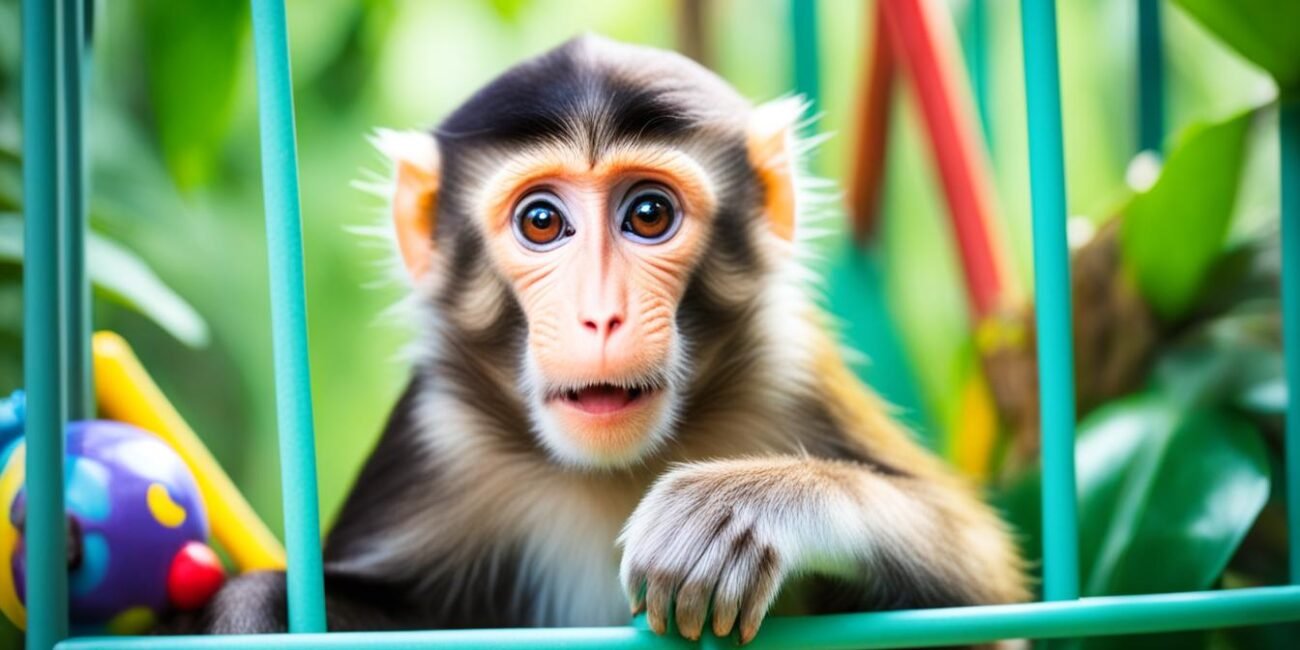


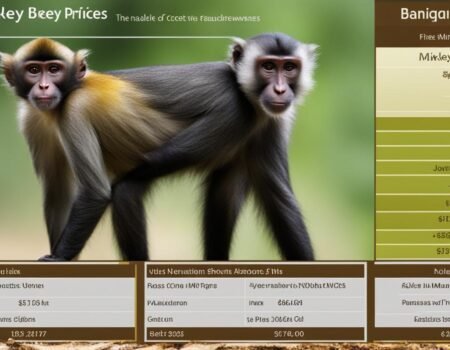
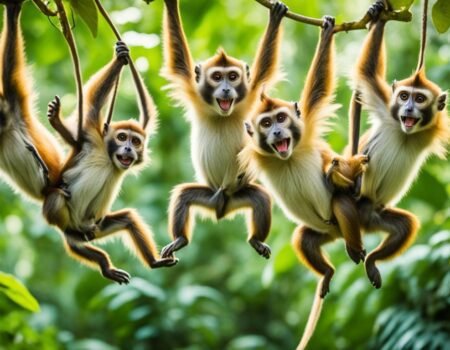
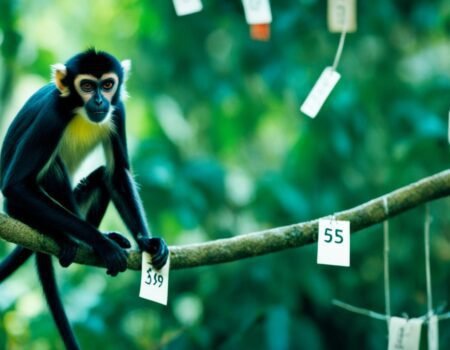
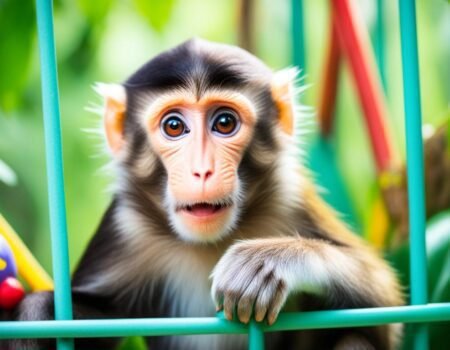
No Comment! Be the first one.